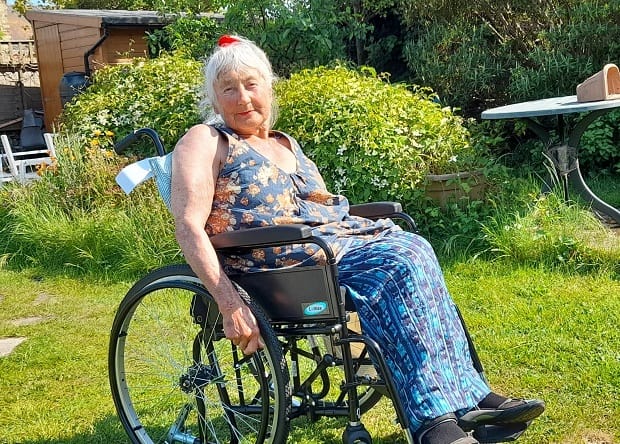
“I just don’t care! I’ve had people whinging at me all day so I can do without you going on at me as well,” shouted the driver of the removal lorry parked on the dropped kerb on my way home.
Like many disabled people it took me a long time to acknowledge that I wasn’t as able as the majority of the population. But why are we reluctant to come out as disabled? I hear “I won’t use a stick it makes me look old.” “I’d rather stay at home than be wheeled around.”

Other people’s attitudes have a lot to with it.
As a seven year-old, just out of hospital and recovering from polio, I heard a woman say to my mother: “she’s too old to be in a pushchair!” “She can’t walk,” replied my mother. The attitude stuck in my memory. As did the well meaning organisers of a Christmas party for “children crippled by polio”. I hated it. I didn’t know it was patronising but I sensed the organisers congratulating themselves on their own kindness, while we cripples tried to play games with our callipers, our limping legs and our wheelchairs. Picked out as different! Just what you need as a child!
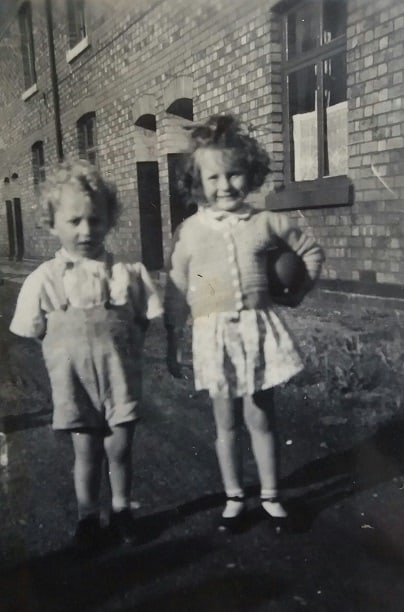
Disabled people don’t want to be pitied or explained. We also don’t want to be blamed for not being economically productive.
Why does my friend Peter with cerebral palsy have to constantly prove he can’t work in order to continue getting benefits? “Do they think I’m lying? Do they think my GP is lying?”
This was a comment on my article about trying out the disabled help on the London train:
“Disability is a drag but she needs to accept she cannot do what able-bodied people can do. Get over it….we cannot keep changing things to keep the minority happy.”
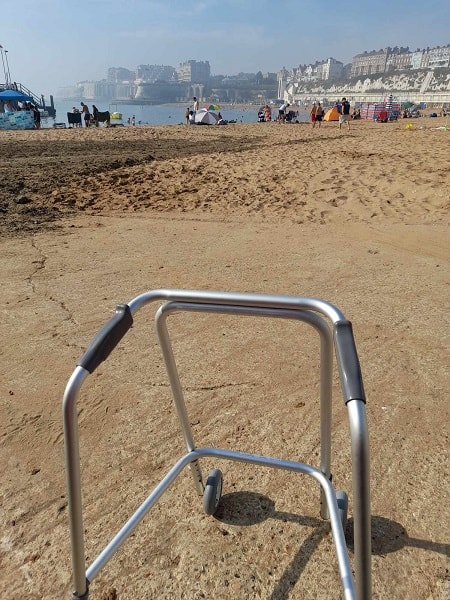
Well, to me, if something is a drag, it’s a temporary setback – you gashed your finger cutting cabbage, your water pipes burst, you burned your dinner etc etc. It’s vastly different from having to give up on ever using your legs again, or accepting that your only chance of living at all is a lung transplant. These are all experiences of people I know, and it’s why I get so furious when I hear other people say they just don’t care.
We may be a minority but more than fourteen million are disabled and it could happen to anyone tomorrow!
Mandy understands. She has a degenerative illness and is one of the bravest people I know. She won’t let inability stop her but even she fears negative attitudes.
“Many people don’t want to make their disability visible until they absolutely must because of disability discrimination.”
“I would say, with my illness, I always have an undercurrent of anxiety when travelling or going out somewhere I haven’t been before. And that is exhausting. And when I’m tired my condition means I can’t speak. So often I depend on the help of strangers – and this time they may not want to help.”
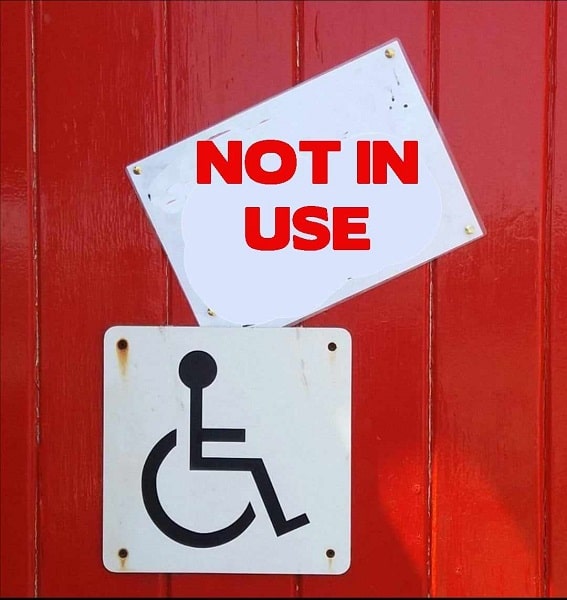
Janie, wheelchair user, says: “The issue with loos is ridiculed by some people but for disabled people it can imprison them in their homes. If you’ve got nowhere to pee, you can’t go out!”
Rina, who walks with a rollator, says: “There is a woman working in my local supermarket, who frequently says to me she wishes her mum would use a rollator and go out by herself but she’s too nervous – it’s very sad.”
Melissa, a researcher into special educational needs, SEN says: “Attitudes to disability have a long way to go. People with disabilities are still required to integrate into existing systems rather than society removing barriers to inclusion.”
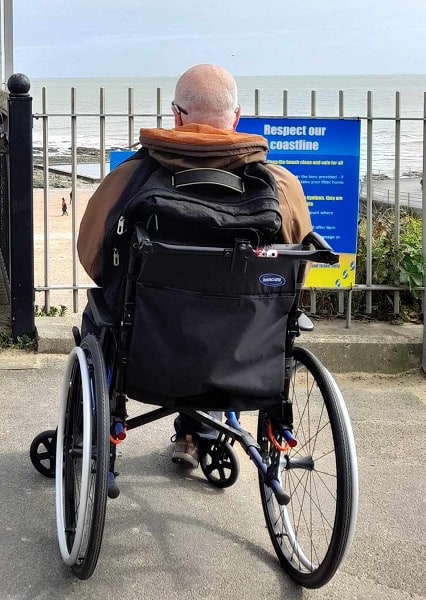
Jim, his wife’s carer and disabled himself, says: “So many have zero idea the challenges disabled people have. Often, just leaving the house is an actual nightmare. Try living a day in our shoes. We don’t want it on a plate but just some consideration to help us in our daily lives!”
I couldn’t put it better. Except I might want it on a plate as well,
Joan who is autistic, says: “How it treats disabled people is a mark of how civilised a society is.”
And before you say you just “don’t care” remember one day you may be disabled too.
Christine is a founder member of disability campaign group Access Thanet

